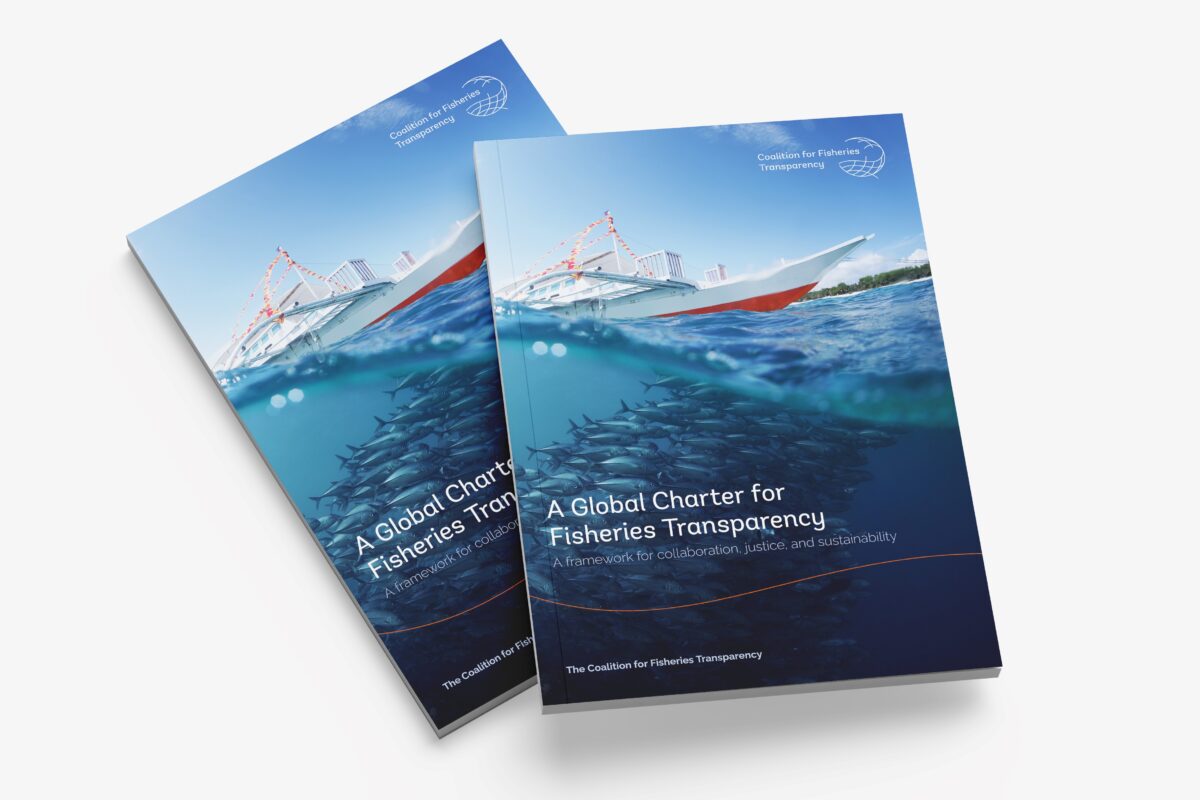The Coalition for Fisheries Transparency calls on states to adopt the principles of the Global Charter for Fisheries Transparency into law and practice
A new report A Global Charter for Fisheries Transparency: A framework for collaboration, justice, and sustainability, published today highlights transparency as a powerful tool to improve fisheries governance at the national, regional, and global levels. By publicizing accurate and up-to-date fisheries information, governments can reap an array of benefits, including improving the long-term sustainability of fisheries resources, enhancing food security, ensuring stable livelihoods for coastal fishing communities, fostering inclusive participation in decision-making, strengthening law enforcement, curbing corruption, and preventing human rights and labor abuses at sea.
The report, commissioned by the Coalition for Fisheries Transparency – a global network of civil society organizations that advocate for greater transparency and accountability in fisheries – elaborates on the ten transparency principles in the Global Charter, aimed at addressing some of the most urgent and complex problems in fisheries management, such as overfishing. As of 2021, almost 38% of global fish populations are caught as unsustainable levels, according to the 2024 State of World Fisheries and Aquaculture (SOFIA) report, published by the Food and Agriculture Organization of the United Nations (FAO).
“Several factors contribute to overfishing, including inadequate laws, weak enforcement, and lack of political will. However, one of the most significant causes is the lack of transparency in data on vessel information, fishing activity, and governance and management, which enables illegal, unreported and unregulated (IUU) fishing, as well as a host of other critical challenges,” explained Maisie Pigeon, Director of the Coalition for Fisheries Transparency.
The Coalition’s report outlines each principle and provides recommendations for governments and civil society, demonstrating examples of their real-world application.
“Transparency reforms are urgently needed in fisheries legislation worldwide,” added Pigeon. “By adopting necessary fisheries policy reforms through ten transparency principles of the Charter into law and practice, governments will demonstrate their commitment to equitable, sustainable, and well-governed fisheries that are free from harmful fishing practices, and from human rights and labor abuses,” she concluded.
This entails regular collection, analysis, and public disclosure of data on fishing activities. Moreover, fostering inclusive participation in decision-making processes will allow governments, civil society, industry, and other stakeholders better monitor the use of marine fisheries resources.
Even though the implementation of the Charter principles varies significantly from country to country, the Coalition’s objective is to establish transparency measures by empowering civil society worldwide to catalyze change. Through engagement with governments on fisheries transparency, and strategic prioritization of advocacy efforts, NGOs can drive meaningful progress, ensuring that government decision-making fulfills transparency commitments and addresses the needs of a multitude of actors.
Effective government implementation of global agreements and frameworks is one example of collective action to support the achievement of the UN Sustainable Development Goal (SDG)14 “Life Below Water” before the 2030 deadline. The 3rd UN Ocean Conference in Nice in 2025 represents a critical moment for governments to adopt transparency measures aligned with the principles of the Global Charter for Fisheries Transparency. Enactment of these policies will reinforce conference objectives, mobilize collective action, and accelerate fisheries transparency efforts, in turn contributing to the realization of the ambitious goal of SDG14.




